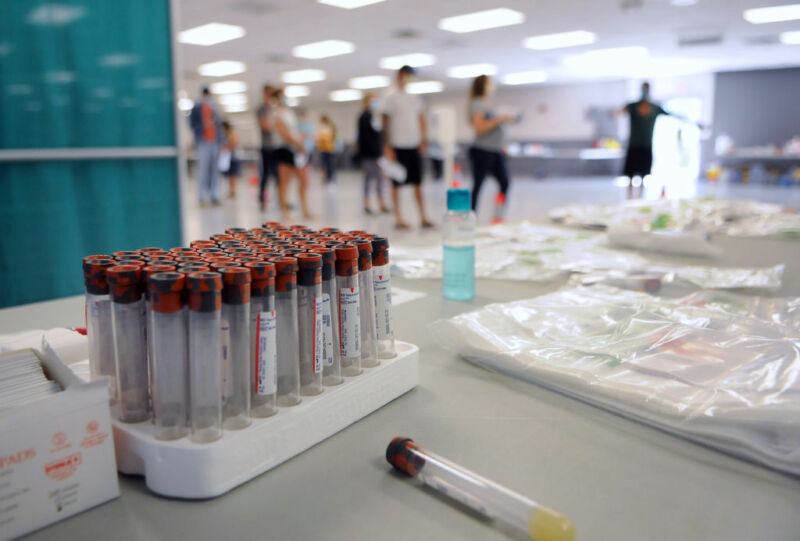Researchers say those recovered from SARS-CoV-2 can be a societal shield

Enlarge / View of blood collection tubes in a rack awaiting SARS-CoV-2 antibody testing. (credit: Getty Images / Barcroft Media)
While many societies remain locked down in various forms of isolation and social distancing, there's a growing population for whom these measures may be irrelevant: those who have had a SARS-CoV-2 infection and cleared it. While we haven't yet ascertained these people's susceptibility to repeated infections, many clearly have antibodies to the virus, and we're finding that some antibodies seem to neutralize the virus. So, there's a reasonable chance that it's safe for these individuals to circulate more widely within the population.
A group of researchers largely based at Georgia Tech have looked at whether this population might be helpful for limiting further infections. The researchers used an epidemiological model to test what would happen if we started placing the formerly infected individuals in the key jobs that we've deemed essential for society to function during social isolation. The results suggest that this "shield immunity" is somewhat effective on its own and significantly enhances the impact of social isolation.
Lots of caveatsAs of right now, there are a number of things we don't know about the progression of a viral infection that will be essential for this to work. One is how long it takes for the person to stop being infectious and how that relates to our ability to detect viral RNA in samples from these individuals.
Read 13 remaining paragraphs | Comments